NAVYPEDIA
 Support the project with paypal
Support the project with paypal
Ships
| Name | No | Yard No | Builder | Laid down | Launched | Comp | Fate |
|---|---|---|---|---|---|---|---|
| Brockville, 1945- MacLeod, 1951- Brockville | J270, 1953- FSE180 | Marine Industries, Sorel | 12.1940 | 20.6.1941 | 9.1942 | RCMP 1945-1951, sold 1961 | |
| Digby, 1945- Perry, 1953- Digby | J267, 1953- FSE181 | Davie SB, Lauzon | 3.1941 | 5.6.1942 | 7.1942 | RCMP 1945-1953, sold 1958 | |
| Esquimalt | J272 | Marine Industries, Sorel | 12.1940 | 8.8.1941 | 10.1942 | sunk 16.4.1945 | |
| Granby, 1945- Colonel White, 1953- Granby | J264, 1953- FSE182 | Davie SB, Lauzon | 12.1940 | 6.9.1941 | 5.1942 | RCMP 1945-1953, sold 1966 | |
| Lachine, 1950- Starnes | J266 | Davie SB, Lauzon | 12.1940 | 14.6.1941 | 6.1942 | rescue vessel 1945, to RCMP 1950, sold 1952 | |
| Melville, 1945- Cygnus | J263 | Davie SB, Lauzon | 12.1940 | 6.7.1941 | 12.1941 | to RCMP 1945, BU 1961 | |
| Noranda, 1945- Irvine | J265 | Davie SB, Lauzon | 12.1940 | 13.6.1941 | 5.1942 | to RCMP 1945, sold 1962 | |
| Transcona, 1945- French | J271 | Marine Industries, Sorel | 12.1940 | 26.4.1941 | 11.1942 | to RCMP 1945, sold 1961 | |
| Trois Rivieres, 1945- MacBrien | J269 | Marine Industries, Sorel | 12.1940 | 30.6.1941 | 12.1942 | to RCMP 1945, BU 1959 | |
| Truro, 1945- Herchmer | J268 | Davie SB, Lauzon | 3.1941 | 5.7.1942 | 8.1942 | to RCMP 1945, sold 1960 |
Technical data
| Displacement standard, t | 590 |
|---|---|
| Displacement full, t | 690 |
| Length, m | 49.4 |
| Breadth, m | 8.53 |
| Draught, m | 2.84 deep load |
| No of shafts | 2 |
| Machinery | 2 diesels |
| Power, h. p. | 2000 |
| Max speed, kts | 16.5 |
| Fuel, t | diesel oil 65 |
| Endurance, nm(kts) | 5900(10) |
| Armament | 1 x 1 - 76/40 12pdr 12cwt QF Mk I/II/V, 4 DCT, 2 DCR (40 in ASW role), mechanical minesweeping gear Melville: 1 x 1 - 102/40 QF Mk IV,1 x 4 - 12.7/62, 4 DCT, 2 DCR (40 in ASW role), mechanical minesweeping gear |
| Electronic equipment | type 286PU radar (some), type 128 sonar |
| Complement | 60 |
Standard scale images

VTE-engined minesweeper Rhyl 1943
Project history
Bangor class minesweepers were designed as alternative to Halcyon class ships which, according to Admiralty, because of relatively large dimensions did not suited for a mass building. Deciding about designing the smaller minesweeper have accepted in 1938. Designing was conducted quickly and already in the beginning of next year design in two variants has been approved: with diesels and with turbines. In the spring of 1939 order for first 10 ships was placed. With the beginning of hostilities mass building of Bangor class started. Many small private yards have been attracted in fulfilment of this program. Foreseeing difficulties which could be at the last in the absence of experience of building of ships with turbine or diesels, Admiralty have developed the design of Bangor with VTEs, and again in two variants: with compact high-speed (a rotational speed of shafts was almost same, as well as at diesel-engined ship) and with more bulky, but habitual, slow-speed VTE. Last variant also became the most mass: British, Canadian and Indian yards have built 67 units, 4 more sister ships, laid down in Hong Kong, were captured by Japanese and has completed for their Navy.
Except the ships with slow-speed VTE, 26 turbine-engined, 14 diesel-engined and only 2 minesweepers with high-speed VTE were built.
Conceived as the pure minesweepers carrying under the design only 4 DCs, Bangor at a completion phase have received the strengthened anti-submarine armament. Because of the overload which have arisen thus it was necessary to refuse from provided by the design 102mm gun, more light 76mm AA gun was installed instead. Nevertheless, stability of Bangors, especially diesel variant, was considered in Britain as insufficient.
From 50 VTE ships, built in Canada, 12 were ordered by RN, but half from them have transferred to Canadian fleet.
Modernizations
1943 - 1944, all: + (1 - 3) x 1 - 20/70 Oerlikon Mk II/IV
1953, most ships: - 1 x 1 - 76/40; + 1 x 24 - 178 Hedgehog ASWRL
Naval service
Esquimalt was sunk by German submarine U190 near Halifax 16.4.1945. All RCN ships were reclassified as coastal escorts in 1953.
© Ivan Gogin, 2015
 HOME
HOME FIGHTING SHIPS OF THE WORLD
FIGHTING SHIPS OF THE WORLD CANADA
CANADA MINE WARFARE SHIPS
MINE WARFARE SHIPS MELVILLE minesweepers (1941-1942)
MELVILLE minesweepers (1941-1942)
